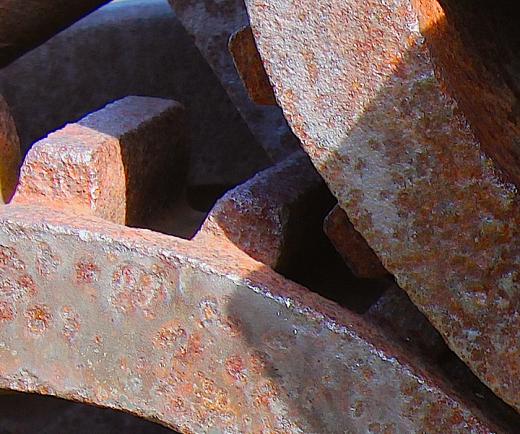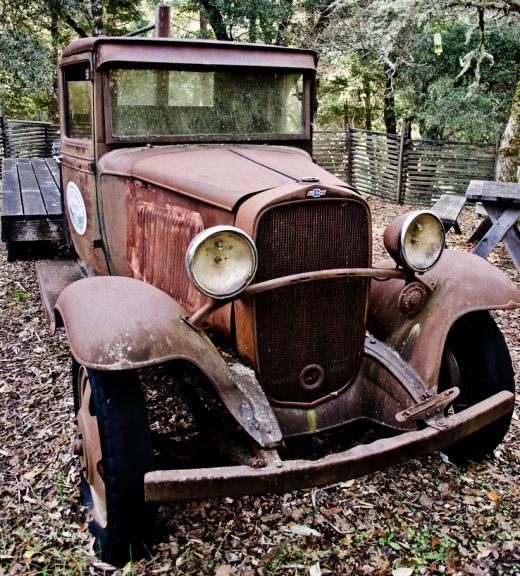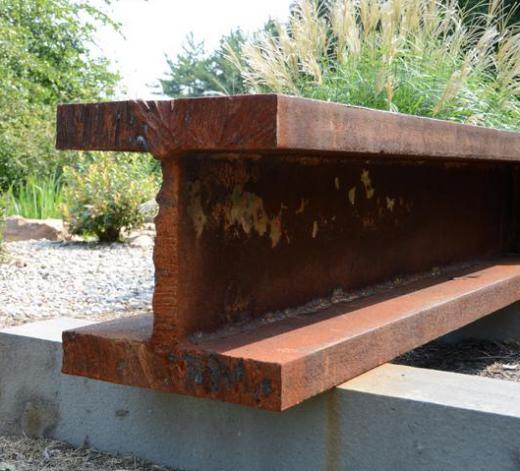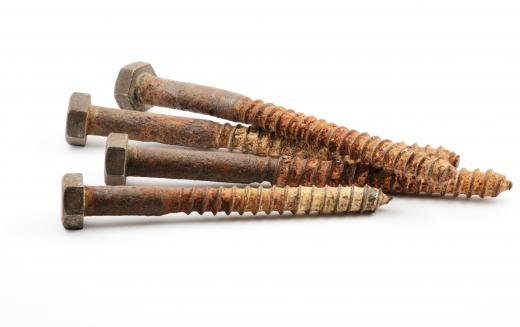What is Corrosion?
 Malcolm Tatum
Malcolm Tatum
Most people have seen the end results of corrosion on a number of appliances, vehicles, and other items that included metal components. But what is corrosion and how does it develop? Here are the basics of how corrosion begins and what can be done to prevent corrosion from ruining valuable items.
Corrosion is a process that takes place when essential properties within a given material begin to deteriorate, after exposure to elements that recur within the environment. Most often, this deterioration is noticed in metals and referred to as rust. What happens in this case is the chemical reactions that are set up by an exposure of the electrons in the metal to the presence of water and oxygen. As an example, a tin roof is exposed to the wind and the rain.

Over time, the basic workings of that exposure will allow the creation of acids that begin to alter the surface of the tin. The top layer becomes encrusted with corrosion in the form of a red-brown substance that lacks the cohesive nature of the tin. Continued development of the corrosion will eventually weaken the entire roof and the tin will eventually become so weak that it will no longer provide adequate protection as a roof material.

One of the ways to fight corrosion is to apply a protective layer to any metal surface that must come in contact with water and oxygen. For example, some forms of enamel are ideal for protecting metal surfaces. A polymer coating, such as the paint that is used on automobiles, is another example of adequately protecting metal objects that cannot be easily replaced. Plating is also used in many instances for a number of metal objects, such as jewelry, household piping and metal sports equipment.

Cathodic protection also helps to minimize the potential for corrosion. In the process of electrochemisty, there has to be an agent that acts as a cathode of an electrochemical cell. This is often an avenue of protection used when steel is involved in the construction. Essentially, the surface of the steel is polarized until the surface has uniform potential, which helps to prevent the occurrence of the corrosion. The steel will remain strong and usable for a much longer period of time. Polarized steel is used to make ships, fuel pipelines for city systems, platforms for off shoring drilling operations, and pier piles.

Corrosion causes the eventual failure of any metal that it begins to consume. Adequate protection of metals from corrosion leads to extended lives for many of the major purchases people make. Protecting metals from corrosion also means ensuring the safety of persons who make use of multi-storied buildings, sail on ships, or rely on utility companies to supply gas and water to their homes safely and economically. By protecting metals that are used every day, people cover all the bases when it comes to making the most of the items they own and rely upon.
AS FEATURED ON:
AS FEATURED ON:















Discussion Comments
Not actually bad, but the thing is the corrosion may affect the functionality of it, therefore you will start see that the power required by the appliance is less.
i work with air conditioners, and in the condenser coil, we found rust powder. how can we clean the inner part of a copper condenser coil?
I work with a solar hot water manufacturer and have designed a solar hot water system with a 10 year warranty that is suitable for hard water.
It is super simple, there are no gadgets, pumps or sensors or valves, hence very reliable and because the gadgetry has been eliminated it has brought the price done so that it is very, very affordable - from $847 !
We are one of the manufacturers of solar water heaters. we are facing corrosion problems due to hard water on stainless steel 304 grade. Is is any protective coating available to prevent corrosion on stainless steel material?
@chrisinbama: Yes, it actually works. I think that it has something to do with the acid that is in the soda.
I'm not sure if any sodas will do. I've only heard of people using coke.
Is it true that you can pour soda on your car battery terminal if it has corrosion on it?
@dinoleash: I would have to say that the batteries are no good. If you took the batteries out of an electronic device, you need to check and make sure that the corrosion isn’t also on it. If so, don’t sweat it too much. There is a way to clean it.
If the corrosion is light, you can easily clean it. You can take a cotton swab and soak it in vinegar and then gently swab the terminal. It might make a fizzing sound but don’t let that frighten you. That is normal.
If the corrosion is bad, you can very gently rub the area with a fine sand paper and then try the vinegar again.
If my AA batteries have some corrosion on them, does that mean that they are bad?
Post your comments